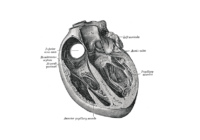In search of the hidden reservoir of Malaria

This blog was originally posted on the Sanger Institute blog which can be read here.

This blog was originally posted on the Sanger Institute blog which can be read here.

Guest author Robin Wynyard reflects on an article on the role of ‘tough love’ in supporting people who are homeless, published in the Journal of Compassionate Health Care. He relates the article to a visit he made to the charity ‘Catching Lives’ and his own personal experiences with homelessness.

Guest blogger Neil Brunton reflects on a case study on person-centered care, published earlier this year in the Journal of Compassionate Health Care. He relates the study to his own to personal experience of staying in an intensive care unit after major surgery.

To echo the voice of so many suffering with chronic pain, yes, “pain sucks!” If we do not work as researchers, clinicians, and policymakers to see chronic pain as more than a biological nociceptive experience, we will simply perpetuate where we are now: often strained clinical relationships and largely discouraging efficacy in treating chronic pain.

The number of non-communicable diseases (NCDs) are rising in developing countries. An article published today in the International Journal of Behavioral Nutrition and Physical Activity, investigates the burden of NCDs associated with dietary risk factors. Here, author Yohannes Adama Melaku tells us more.
For smokers, quitting is hard. Online communities can help. Smoking is a preventable cause of illness and death in the United States, but as anyone who’s tried to quit can tell you, it’s not easy to leave cigarettes behind. Ideally, online communities allow smokers and ex-smokers to share quit advice from the trenches: what works,… Read more »

Recently published research in the Journal of Foot and Ankle Research compares the effects of two foot cushioning approaches on peak pressure at the forefoot during running. Here, author Heiner Baur tells about the study and the controversial debate in the field of orthopedic technology.

Social Cognitive Theory (SCT) is among the most influential theories in psychology, but it is expressed almost entirely in narrative form.

In this podcast, we talk to Heather Rogers about her recently published review in Psychology: Research and Review that discusses the history of heart disease as a public health problem. Heather also talks about the contribution of advancements in scientific knowledge regarding stress in the 1950’s and 60’s that support the hypothesis of stress as a one cause of disease.

This week at a meeting of the UNAIDS Program Coordinating Board (PCB) in Geneva, UN agencies, governments and NGOs gather to discuss ‘fast-tracking’ the international HIV response. In the sidelines, Harm Reduction International (HRI), is ringing the alarm bells for people who inject drugs, who are being left behind in global efforts to end AIDS by 2030.